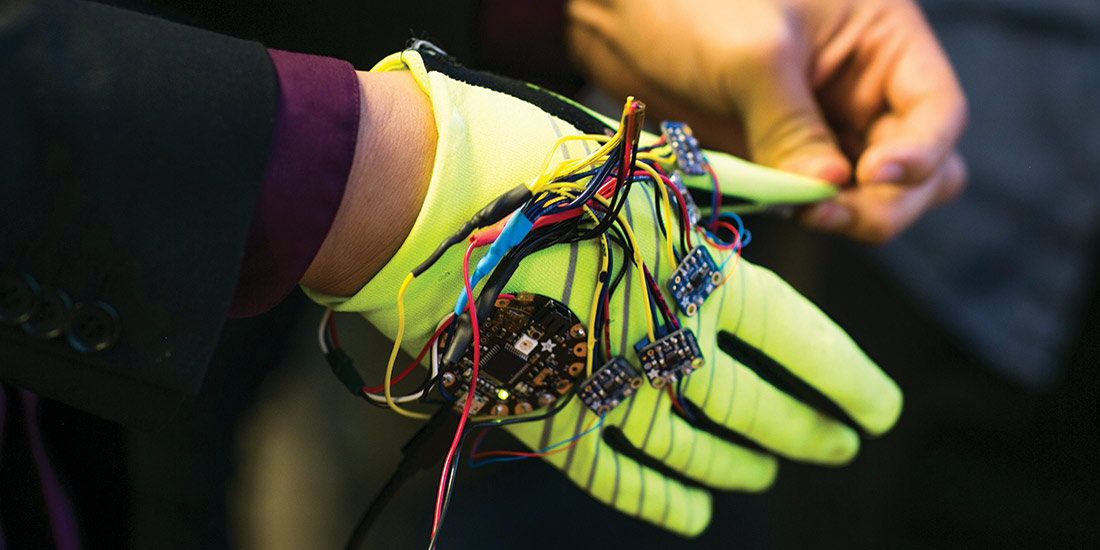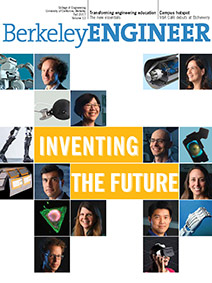
No sense, no feeling
Emerging Virtual Reality (VR) technologies are pushing the bounds of immersive, digital worlds. Currently, objects in these virtual worlds can’t be touched, and when users try to grab, hold or pick something up, the reality experience is broken. That’s why haptics, or perception aided by the sense of touch, is viewed as the next VR frontier. Now, a team at the BEST Lab — including 2017 M.Eng. graduates Arielle Maxner, Diego Rivas and Kingston Xu, working with mechanical engineering professor Alice Agogino and postdoctoral fellow Euiyoung Kim — has developed TACTO, a glove equipped with haptic feedback technology that will transmit the sense of feel from the virtual world around them.

